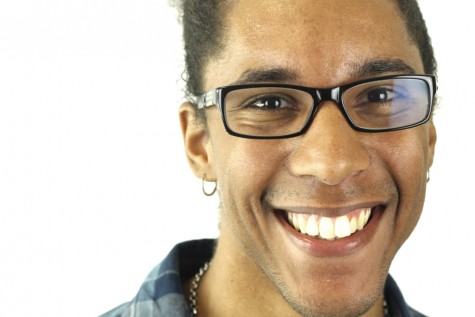LGBT faculty share struggles
October 29, 2014
When she was preparing to come out of the closet, she was up for a tenured position at the university, which put her in a complicated situation.
Lisa Moyer, a professor of family consumer science, identifies as gay.
“It was a difficult choice, but I decided I had to practice what I preach—to me it was important not to live a lie,” Moyer said.
Though she inevitably received tenure, Moyer represents a sexual minority on campus, and she said most people recognize she is a lesbian.
“I don’t keep it quiet. Sometimes there’s pressure to speak up about issues that affect the LGBTQ population even if I don’t necessarily want to,” Moyer said. “I feel like I need to, and that’s hard.”
Despite being open about her sexuality, Moyer now has to walk a fine line between being supportive and not being seen as pushing the “gay agenda.”
The gay agenda is a derogatory term used to describe anyone who identifies under the umbrella of LGBTQA as pushing to make every issue a gay issue, which Moyer said is not necessarily true.
Ruben Quesada, a professor of English, said those who come from places of privilege or power may see a concern raised from a marginalized group as a complaint.
“That utterance is coming from someone who does not empathize with that group of people who have been oppressed,” Quesada said.
Quesada, who is gay and Latino, said people should realize that there has always been a “straight agenda,” and mentioning a gay agenda is an excuse for saying that their lifestyle is not legitimate.
“We’re (seen) as always pushing, it’s more of a homophobic term,” Moyer said.
Moyer said a good example of this agenda pushing is when she and a graduate coordinator have had discussions about inclusivity; she was conflicted with wanting to inform students who come to her about discrimination issues.
“That was really hard for me; do I push the ‘gay agenda’ and have this conversation about inclusion?” Moyer said.
Because she is a gay instructor, she tries not to seem too pushy about certain issues on campus, which means she has to balance being an instructor advising others on ways of inclusivity, and being a gay instructor telling others not to discriminate against other gay people on campus.
She is a professor and she is gay, but she wants to be treated equally and not seen as the “agenda pushing” gay professor.
Moyer said if the tables were turned and she were a straight woman advocating for gay issues, there would be no problems—no stigmas; she would be seen as an ally.
“I’ve been in a room before when they thought I was straight,” Moyer said.
This type of experience is an example of the privilege straight people possess because of heteronormativity, which is the assumption that straight relationships are the only acceptable norm. Those who are heterosexual can sometimes assume that everyone they meet is also straight and therefore not think twice about what they say about those who are not.
However, Moyer said there was a time when she was in a straight relationship; she was married and had a husband. They were married for 19 years—he was her best friend, but she began to realize that she was not happy and did not understand why.
Moyer said they went to marriage counseling hoping to fix whatever latent issue was there, but the problem was she simply was not attracted to him anymore. Moyer said she had no idea she was gay—it never occurred to her.
Moyer said she would see certain signs of her homosexuality and brush them off, Moyer said she always had a web of homosexual friends around her, but she saw it as being supportive or empathetic.
Mentally, this was an issue for her to realize there was a whole new person inside of her that she never really knew existed.
“I was thinking wow, I’m a lesbian—what do I do now? It would have been a lot easier not to be,” Moyer said.
Many of the issues people from the LGBTQ community face come down to personal religious beliefs; everyone focuses so much on the factor of homosexuality and sex, which is similar to how African-Americans are at times over-sexualized, Moyer said.
Additionally, Moyer is legally married to her wife, but not fully comfortable holding her hand in public or even kissing her because people may have an aversion to seeing the two displaying affection.
“It’s just this fear that someone will lash out—it’s always in the back of my mind; ‘be careful who’s watching.’” Moyer said.
Moyer said things are getting better with LGBT issues being pushed to the forefront; now more than 30 states have legalized gay marriage.
Roberto Hodge can be reached at 581-2812 or [email protected]


















































